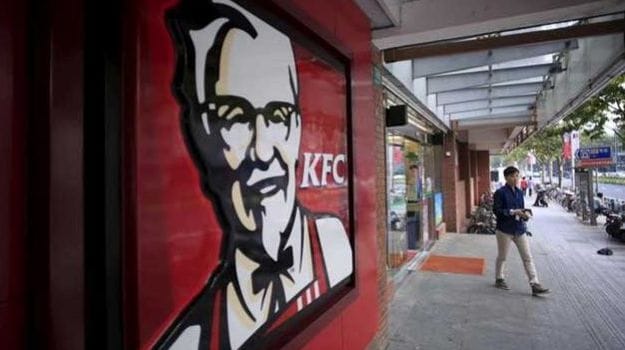Consumer groups on Wednesday will deliver a petition from more than 350,000 people to the KFC fried chicken chain, calling on the Yum Brands Inc unit
Several fast-food restaurants, which have been under fire for selling unhealthy meals, are assuming the role of public health change agent by forcing their respective meat suppliers to adopt new practices aimed at keeping vital antibiotics working.
KFC has said that by 2017, antibiotics important to human medicine will only be used to maintain chicken health and only under the supervision and prescription of a licensed veterinarian. But critics say that policy effectively allows for routine use of antibiotics by its chicken suppliers.
As per federal government guidance, KFC does not allow the use of such antibiotics for growth promotion. Medical experts warn that the routine use of antibiotics to promote growth and prevent illness in healthy farm animals contributes to the rise of drug-resistant "superbug" infections that kill at least 23,000 Americans each year and represent a "catastrophic threat" to global health.
More than 70 percent of medically important antibiotics in the United States are sold for use on livestock and poultry. McDonald's Corp
Chick-fil-A Inc, which has surpassed KFC to become the No. 1 U.S. fast-food chicken chain by revenue, has vowed to fully transition to chicken raised with any antibiotics by the end of 2019.
KFC 'Lagging'
"KFC is lagging woefully behind. Diners around the country want KFC to step up," said Lena Brook, food policy advocate with the Natural Resources Defense Council (NRDC), one of the groups delivering petitions to KFC's headquarters in Louisville, Kentucky.
Yum, which this year plans to spin off its China business that contributes roughly 40 percent of the company's overall operating profit, did not immediately respond to requests for comment.
Yum's Taco Bell and Pizza Hut restaurants have set 2017 deadlines for switching to chicken raised without antibiotics important to human health. KFC, which purchases more chicken than those two chains, has not matched that commitment.
"These lifesaving drugs should be used only when animals are sick," said Steven Roach, food safety program director at the Food Animals Concern Trust.
FACT and U.S. Public Interest Research Group Education Fund also sent representatives to deliver the KFC petitions. The Center for Science in the Public Interest and CREDO Action also collected signatures.
That action comes a day after Yum investors submitted a shareholder proposal requesting that the company quickly phase out harmful antibiotic use in its meat supply. The World Health Organization has warned that the world is moving toward a post-antibiotic era in which many infections would no longer be treatable because of the overuse of antibiotics.
Two U.S. patients are known to have been infected with bacteria carrying the mcr-1 superbug gene that makes germs highly resistant to a last-resort class of antibiotics.
The mcr-1 gene has been found over the past six months in farm animals and people in about 20 countries, including China, Germany and Italy. Health officials fear the mcr-1 gene will soon be found in bacteria already resistant to all or virtually all other types of antibiotics, potentially making infections untreatable.
Such discoveries have increased the urgency of calls to reduce antibiotic use in beef and pork production. In April, 54 large investors launched a campaign to curb the use of antibiotics in the meat and poultry served by 10 large U.S. and British restaurant groups, including Yum.
(This story has not been edited by NDTV staff and is auto-generated from a syndicated feed.)







